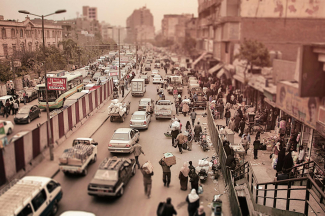FILTER
Displaying 961 - 970 of 4013 publications
Abstract Mining projects across the globe face controversy over the loss of community welfare, particularly to the detriment of vulnerable groups. However, few studies have analyzed how extractive…
| Peer Reviewed | ChinaThis study examines factors determining farmers’ investment in organic farming using a contextualized lab-in-the-field experiment with 220 small household farmers in Northern Vietnam. We focus on the…
| Peer Reviewed | VietnamShrimp aquaculture is among the most vital sectors in the Mekong Delta of Vietnam regarding economic well-being, social aspects, and food security beyond the country boundary. Nevertheless, this…
| Peer Reviewed | VietnamThis study uses a large field experiment linked to actual behavior to evaluate the effects of an information campaign with and without celebrity endorsement on the use of single-use plastics. We find…
| Peer Reviewed | VietnamAbstract This paper replicates and extends the study by Martey (2019) by investigating the effect of house ownership patterns and rental status on energy choices for lighting and cooking within the…
| Peer Reviewed | South Africa, Ghana, Global HubAbstract In recent decades, Egypt has experienced rapid internal migration movements triggered by urbanization, socioeconomic development, and environmental changes. From a literature perspective, few…
| Peer Reviewed | Global Hub
Over the years, Kenya has recorded an increase in the volumes of vehicles shipped into the country. Some of these vehicles end up being premature end-of-life vehicles (ELVs) mainly due to road...
| Peer Reviewed | Kenya
This article analyses the use of economic incentives, particularly the Environmental Performance Deposit Bonds (EPDBs) in enhancing sustainable environmentally sound mine operations and closure. This...
| Peer Reviewed | KenyaWhat are the most significant achievements and challenges women have faced over the last 20 years? This chapter aims to provide a more in-depth explanation of women's pathway to empowerment in seven…
| Peer Reviewed | Colombia